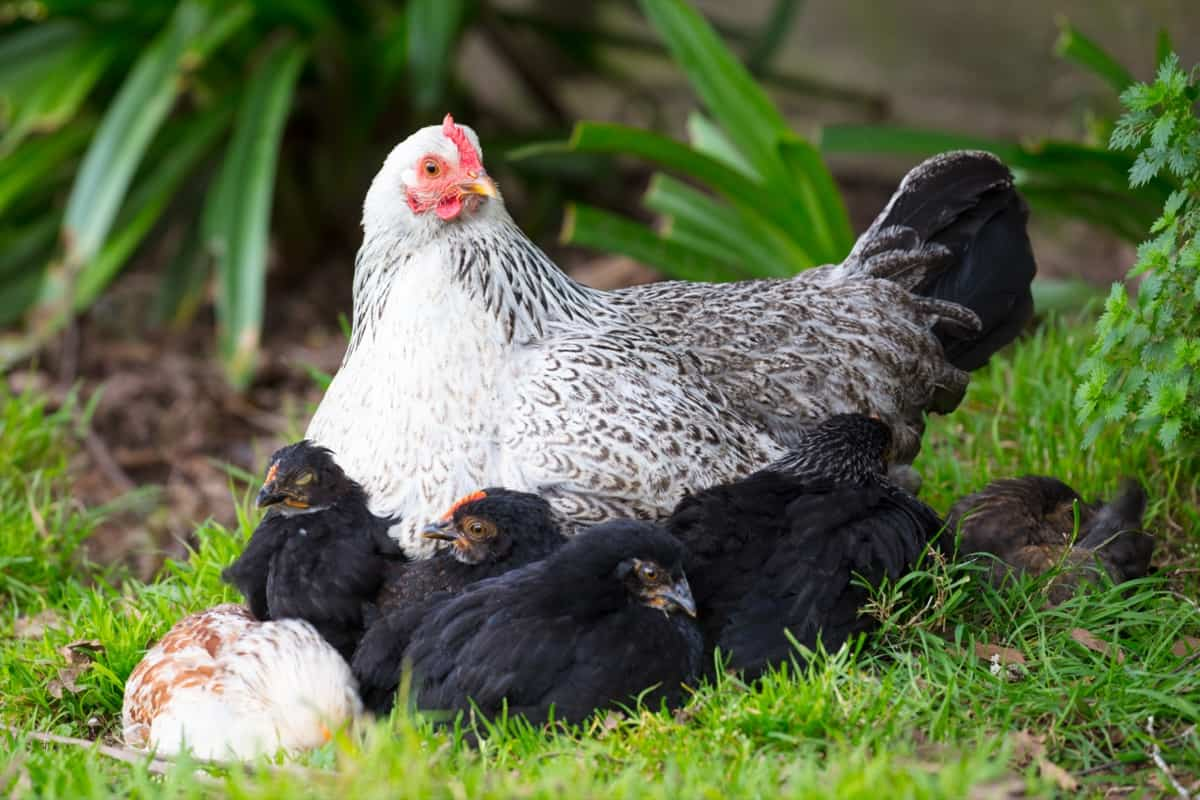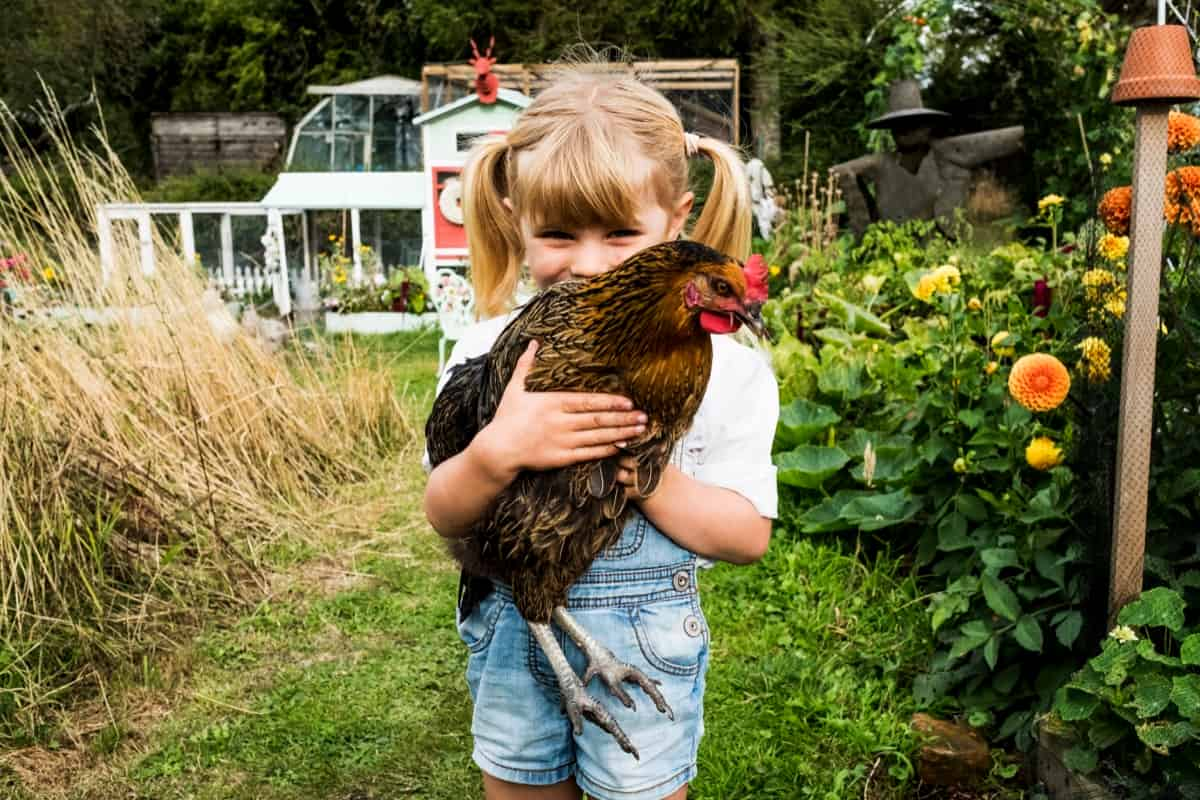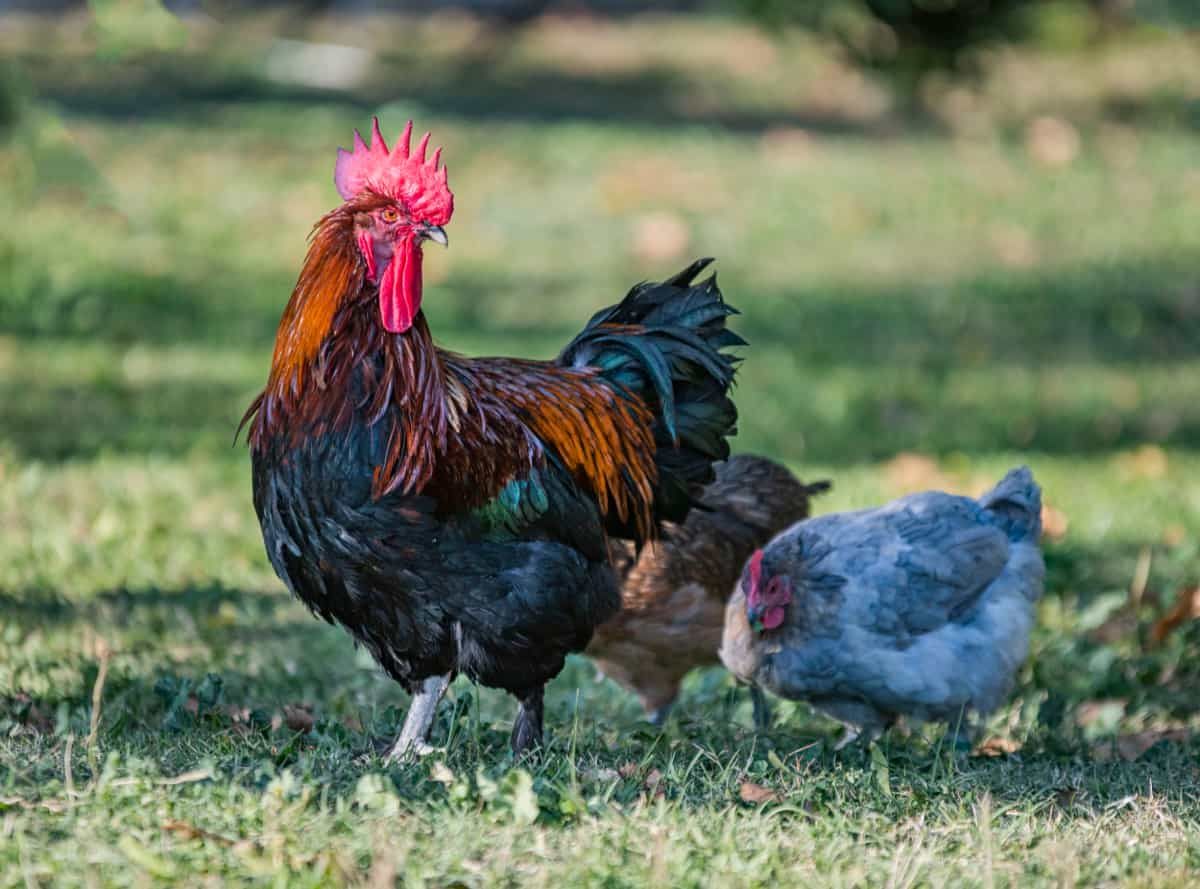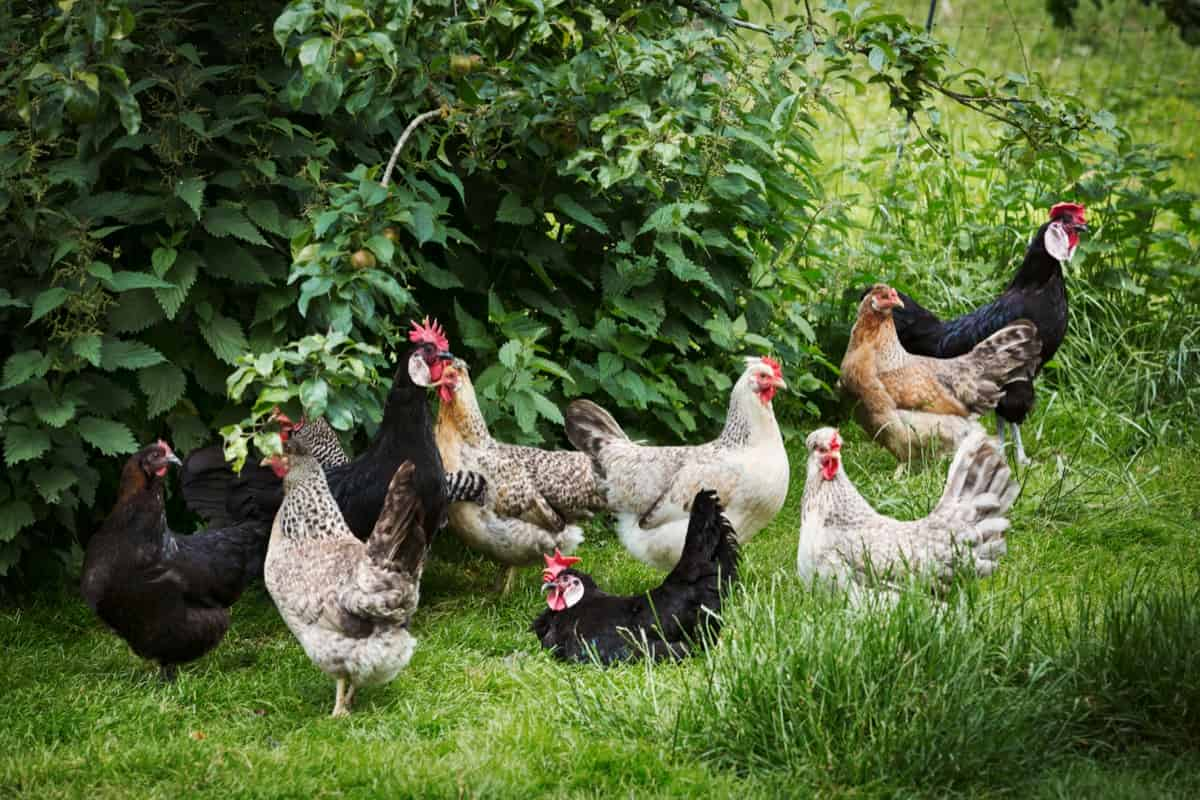Chickens are increasingly being integrated into backyard gardens and urban farms as a way to enhance sustainability and self-sufficiency. While there are certainly advantages to keeping chickens in a garden setting, there are also some potential drawbacks to consider. In this article, we will discuss the pros and cons of chickens in gardening.

Chicken and Gardening
Pros of Chickens In Gardening
The presence of chickens in a garden brings numerous benefits, making them an ideal addition for those looking to enhance their gardening experience. Below are some pros of having chickens in a garden, explaining each benefit in detail.
Pest Control
Chickens are natural pest controllers. They have an insatiable appetite for insects, slugs, snails, and other pests that can damage plants and crops. As they forage in the garden, they consume various plant materials, insects, and other organic matter. Through their digestion process, chickens break down these materials and convert them into valuable nutrients that can be absorbed by plants. By allowing chickens to roam freely in the garden, they will actively seek out and consume these pests, reducing the need for chemical pesticides and promoting a healthier, more organic gardening environment.
Fertilizer Production
Chickens are excellent producers of high-quality fertilizers. Their droppings are rich in nitrogen, phosphorus, and potassium, essential nutrients for plant growth. When chickens are allowed to roam in the garden freely, their droppings enrich the soil, providing a natural and sustainable source of fertilizer. This promotes healthy plant growth and improves soil fertility over time. This natural fertilization process eliminates the need for synthetic fertilizers, making the garden more environmentally friendly.
Soil Aeration
Chickens have a unique way of scratching and pecking at the ground as they forage for food. This behavior not only helps them find insects but also aerates the soil. By scratching the surface, chickens loosen compacted soil, allowing better water penetration and root growth. This soil aeration improves drainage and reduces the risk of waterlogging, which can be detrimental to plant health.
Weed Management
Chickens are effective weed managers. Chickens are known to scratch and dig the soil, which helps to uproot and control weeds. Their constant scratching behavior helps to disturb the weed seeds and prevent their growth, thereby reducing the competition for nutrients, water, and sunlight with the desired plants in the garden. They love to eat various types of weeds, including grasses, dandelions, and clover. By allowing chickens to graze in the garden, they will naturally control weed growth, reducing the need for manual weeding or herbicides. This saves time and effort while maintaining a cleaner and more aesthetically pleasing garden.
In case you missed it: Step into Elegance: Discover the 9 Bantam Chickens With Feathered Feet

Companionship
Chickens can provide a sense of companionship and enjoyment in the garden. Observing their behaviors and interactions can be a source of amusement and relaxation. Many gardeners find joy in watching chickens scratch the soil, take dust baths, or simply go about their daily activities. Their presence adds a lively and charming element to the garden, creating a harmonious connection with nature.
Composting
Chickens can be excellent contributors to the composting process. Their manure, bedding, and leftover food scraps can be added to the compost pile to create nutrient-rich compost. This nutrient-rich compost can be used to improve soil fertility, increase organic matter content, and enhance overall soil health in the garden.
Cons Of Chickens In Gardening
Chickens can bring numerous benefits to a garden, such as natural pest control, fertilizer production, and even entertainment. However, it is important to consider the potential drawbacks chickens may pose in a gardening setting. Below are some of the cons associated with keeping chickens in a garden.
Damage to vegetation
Chickens have a natural instinct to scratch and peck at the ground. While this behavior can be beneficial for soil aeration, it can also lead to damage to plants and vegetation in a garden. Chickens may uproot seedlings, trample delicate plants, and create unsightly bare patches in the lawn or garden beds.
Soil disturbance
Chickens, with their constant scratching and pecking, can cause significant soil disturbance. This can disrupt the delicate balance of soil structure and nutrient distribution, potentially affecting the health and growth of plants. Additionally, the constant scratching can lead to erosion in certain garden areas.
Fecal matter
Chickens produce manure, which can be a valuable source of nutrients for the soil when properly managed. However, if not managed correctly, chicken manure can become a source of unpleasant odors, attract pests, and potentially transmit pathogens. It requires careful handling and composting to ensure the manure is properly utilized without causing any negative impacts.
In case you missed it: Bresse Chicken Breed: Facts, Profile, Charactaersticks, and Temperament

Predation
Chickens are vulnerable to predation by various animals, including dogs, foxes, raccoons, and birds of prey. In a garden setting, where chickens are often free-ranging during the day, the risk of predation increases. This can result in the loss of chickens and potentially disrupt the garden ecosystem.
Noise and odor
Chickens are known for their vocalizations, which can include loud crowing and clucking. While some gardeners may find this charming, others may find the noise disruptive, especially if they live in close proximity to their neighbors. Additionally, the odor from chicken coops and manure can be strong and unpleasant, particularly if not properly managed.
Pest Management Challenges
Although chickens are known for their ability to control pests, they can also pose challenges in pest management. Chickens may not discriminate between harmful pests and beneficial insects in the garden. They may devour beneficial insects such as ladybugs, lacewings, or pollinators, which can disrupt the ecosystem balance and impact the overall health of your garden.
Fencing and Containment
Proper fencing and containment are essential to prevent chickens from causing havoc in your garden. This can be costly and time-consuming, especially with a large garden or complex layout. Additionally, chickens are skilled at finding ways to escape, so constant vigilance is required to ensure they do not wander into areas where they can cause damage or become a nuisance.
In case you missed it: From Coops to Eggs: Discover the Best Beginner Chicken Breeds

Conclusion
In conclusion, integrating chickens into a garden can provide numerous benefits, such as pest control, natural fertilizer production, soil aeration, and composting assistance. However, it is essential to consider the potential drawbacks such as plant damage, noise, odor, space requirements, and the time and maintenance involved. Careful planning with consideration is necessary to ensure a successful and harmonious integration of chickens in gardening.
- Feed Your Flock for Less: Top 10 Tips to Save on Chicken Feed
- Ultimate Guide to Ossabaw Island Hog: Breeding, Raising, Diet, and Care
- Hatching Answers: The Top 10 Reasons Your Chickens Aren’t Laying Eggs
- Eggs and Economics: Breaking Down the Cost of Raising Backyard Chickens
- Defend Your Greens: Proven Methods to Keep Iguanas Out of Your Garden
- Ultimate Guide to Cinnamon Queen Chicken: A Comprehensive Guide for Beginners
- Ultimate Guide to California Tan Chicken: Breeding, Raising, Diet, Egg-Production and Care
- Ultimate Guide to Marsh Daisy Chicken: Breeding, Raising, Diet, and Care
- 10 Types of Chicken Farming Businesses You Can Start for Profits